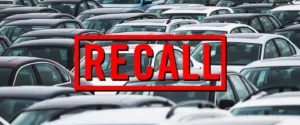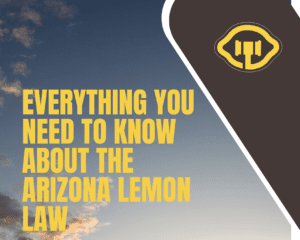

In today’s digital age, consumers have more power than ever before. With just a few clicks, you can access endless amounts of information, compare products, and even engage with advocacy groups to help make informed decisions—especially when it comes to big-ticket purchases like buying a car. This shift toward consumer awareness and advocacy has been transformative in many industries, and the automotive sector is no exception. Now, more than ever, buyers can make smarter, educated choices before committing to a purchase.
The Power of Information
The biggest change has been the consumer’s ability to access detailed information about the products they are purchasing. Online resources have shifted the power back into the hands of consumers, helping them understand the features of cars in-depth instead of simply relying on persuasive sales pitches. Recently, more people have been turning to websites like Edmunds, Kelley Blue Book, and Consumer Reports to stay informed, allowing them to make unbiased decisions based purely on vehicle information.
Social media platforms have also played a significant role in helping people connect with others about their experiences and concerns regarding their vehicles. Facebook groups, Twitter discussions, and Reddit threads provide communities for like-minded individuals, allows consumers to learn from others’ mistakes, discover issues with specific models, and receive real-time updates about recalls.
Online Reviews and Transparency
The internet empowers consumers now more than ever, as it helps hold companies accountable and places honesty at the forefront of every purchase. Websites like Yelp, Google Reviews, and Trustpilot allow customers to leave feedback, whether it’s positive or negative. If a car manufacturer’s vehicle falls short of expectations or a dealership provides poor service, buyers can share their experiences online, helping others make more informed decisions.
Social media has the power to shape public perception. A handful of negative reviews or a viral post can cause irreparable damage to a company’s reputation. This puts pressure on automakers and dealerships to improve their offerings and be more transparent about their products, ensuring easily accessible information on recalls and defects.
Consumer Advocacy Groups: A Stronger Voice
On the legal side, consumer advocacy groups play a vital role in protecting buyers. Organizations like the Arizona Attorney General’s Office and the CIC prioritize ensuring consumers are treated fairly, investigating complaints, and mediating disputes between consumers and businesses.
These advocacy groups also help consumers understand the lemon laws, which are designed to protect individuals. They ensure consumers are fully informed of their rights and provide crucial support when things go wrong. Additionally, if consumers need to pursue legal action, these groups can refer them to an attorney who specializes in the issue at hand. Whether it’s a lemon law claim, faulty warranties, or safety recalls, these organizations offer valuable legal advice and support.
Fostering a More Informed Public
This new age of consumer awareness is leading to a more informed public. Consumers now have the tools, information, and support to make better decisions and protect their interests. Whether it’s reading reviews, joining advocacy groups, or holding companies accountable through transparency, buyers are empowered like never before.
As automakers adapt to the demand for transparency and improved customer service, the entire automotive industry benefits from a shift toward consumer-first practices. In the end, consumers are the winners, equipped to make smarter, more informed choices in their automotive purchases.
If you think you purchased a Lemon vehicle, the best advice is to consult with an attorney as soon as possible. Many people give up without ever contacting an attorney and are surprised to learn that the law allows you the right to hire an attorney for free. The law is there to protect you, but it only works if you take advantage of it—before it’s too late!
For more information, contact Hammer Law PLLC to speak with an experienced Lemon Law attorney at (888) 705-6067 or hammerlemonlaw.com.
Sources:
Source: Consumer Reports. (n.d.). Car Buying Guide. Retrieved from https://www.consume rreports.org/cars/
Kelley Blue Book (KBB) Kelley Blue Book. (n.d.). Car Values & Pricing. Retrieved from https://www.kbb.com
Automotive News. (2020, August 10). How Consumer Advocacy is Shaping Auto Sales and Buying Behaviors. Retrieved from https://www.autonews.com
Ma, J. (n.d.). Consumer rights and advocacy in Arizona. StateRegsToday. Retrieved February 4, 2025, from https://www.stateregstoday.com/living/consumer-protection/consumer-rights-and-advocacy-in-arizona




 At some point, you or someone you know has likely received a recall notice from your car manufacturer. Whether it’s for a small part or something more major, the manufacturer is legally required to inform you if the vehicle has a defect that causes it to not meet federal safety standards. In addition, they must repair, replace, or refund the affected vehicle part—or, in some cases, the entire vehicle. Sounds straightforward, right? However, there are times when manufacturers inform consumers but don’t have a solution ready. It’s like saying, ‘Hey, your car has a problem, but there’s nothing we can really do about it. Good luck.’ Automakers must follow strict protocols, which means sometimes recalls are issued while they’re still working on a solution.
At some point, you or someone you know has likely received a recall notice from your car manufacturer. Whether it’s for a small part or something more major, the manufacturer is legally required to inform you if the vehicle has a defect that causes it to not meet federal safety standards. In addition, they must repair, replace, or refund the affected vehicle part—or, in some cases, the entire vehicle. Sounds straightforward, right? However, there are times when manufacturers inform consumers but don’t have a solution ready. It’s like saying, ‘Hey, your car has a problem, but there’s nothing we can really do about it. Good luck.’ Automakers must follow strict protocols, which means sometimes recalls are issued while they’re still working on a solution.











